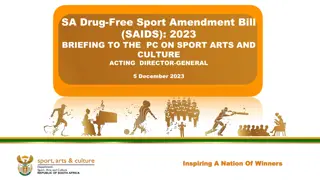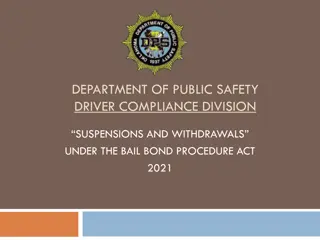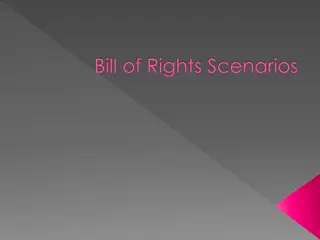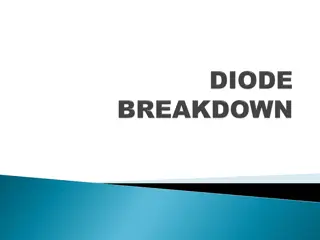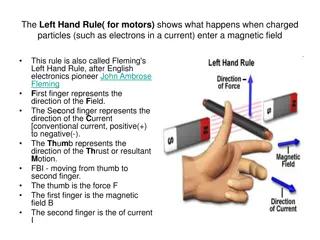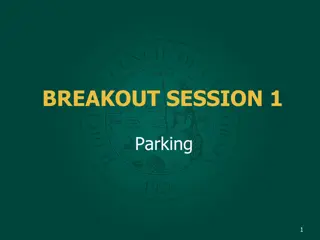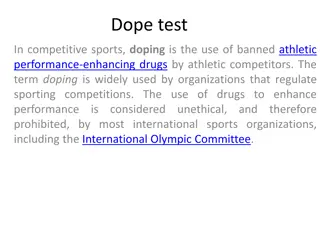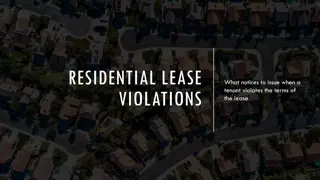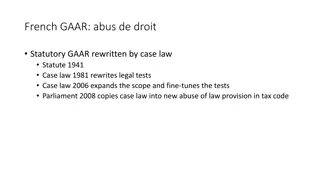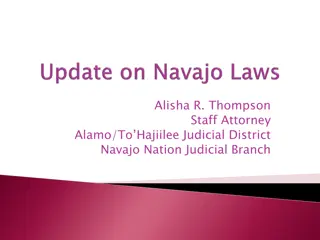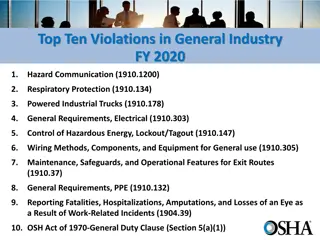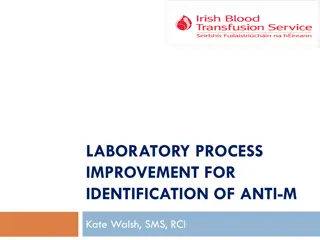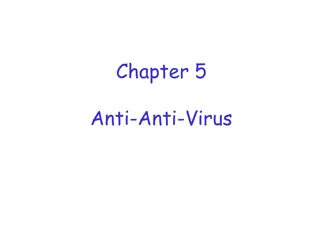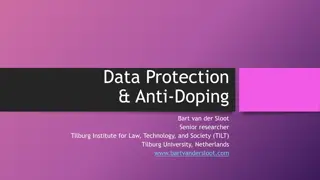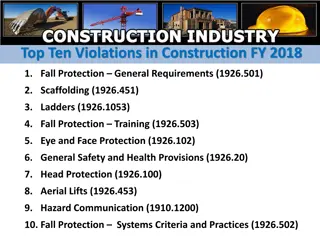Understanding Doping and Anti-Doping Rule Violations
Doping refers to the occurrence of various violations outlined in the World Anti-Doping Code, leading to Anti-Doping Rule Violations (ADRVs). Athletes are accountable for any prohibited substances found in their system, whether consumed knowingly or unknowingly. The list of banned substances is determined by WADA, with strict consequences for rule violations. Violations may involve substances, refusal to provide samples, tampering, trafficking, administration, or intentional complicity. Compliance with anti-doping regulations is crucial to maintain fairness and integrity in sports.
Download Presentation

Please find below an Image/Link to download the presentation.
The content on the website is provided AS IS for your information and personal use only. It may not be sold, licensed, or shared on other websites without obtaining consent from the author. Download presentation by click this link. If you encounter any issues during the download, it is possible that the publisher has removed the file from their server.
E N D
Presentation Transcript
Definition of doping Definition of doping and issues related to and issues related to anti anti- -doping rule violations doping rule violations
Definition of DOPING Doping is defined as the occurrence of one or more of the anti-doping rule violations set forth in Article 2.1 through Article 2.11 of the World Anti-Doping Code . An ANTI-DOPING RULE VIOLATION (ADRV) may be caused not only by a positive test result. There are 11 types of anti-doping rule violations. All of them apply to athletes, and 7 of them apply also to athlete support personnel e.g. coaches and doctors. Athletes are responsible for any prohibited substance found in their body, regardless of whether they have taken the substance knowingly or unknowingly, or it has been administered to them without their knowledge. The list of prohibited substances is drawn up by WADA and can be found in one of its standards - the List of Prohibited Substances and Methods. The list is available in Polish. Visually impaired athletes may require assistance of guides or pilots during competitions. For anti-doping purposes, guides and pilots are considered as athletes. According to the IPC Anti-Doping Code, an athlete and a guide/pilot are considered a "tandem" competing in an individual sport.
Anti-doping rule violation may take the form of: Legal basis: the Act of 21 April 2017 on combating doping in sport and the Act of 27 November 2020 amending the Act on combating doping in sport 1) presence of a prohibited substance or its metabolites or markers in an athlete s sample; 2) use or attempted use by an athlete of a prohibited substance or a prohibited method; 3) refusing or failing to submit to physiological sample collection, or otherwise evading sample collection by an athlete without a compelling justification, after notification by a duly authorized person that the athlete has been selected to undergo sample collection; 4) failure to provide the required whereabouts information for the needs of doping control; 5) tampering or attempted tampering with any part of doping control;
Anti-doping rule violation may take the form of: 6) possession of a prohibited substance or of instruments that enable the use of a prohibited method; 7) trafficking or attempted trafficking in any prohibited substance or instruments that enable the use of a prohibited method; 8) administration or attempted administration to any athlete in-competition of any prohibited substance or prohibited method, or administration or attempted administration to any athlete out-of-competition of any prohibited substance or prohibited method; 9) assisting, encouraging or any other type of intentional complicity involving a conduct or attempted conduct that constitutes doping in sport or violation of the terms of an ineligibility sanction by another person;
Anti-doping rule violation may take the form of: 10) association by an athlete or other person subject to the authority of an Anti-Doping Organization in a professional or sport-related capacity with any athlete support person who : a) if subject to regulations on disciplinary liability for doping in sport, is serving a period of ineligibility, or b) if not subject to regulations on disciplinary liability for doping in sport, has been convicted or found in a criminal, disciplinary or professional proceeding to have engaged in conduct which would have constituted a violation of anti-doping rules , or c) is serving as a front or intermediary for an individual described in point a) or b). 11) any act, other than tampering or attempted tampering referred to in point 5, by an athlete or other person to discourage or retaliate against reporting to authorities.


